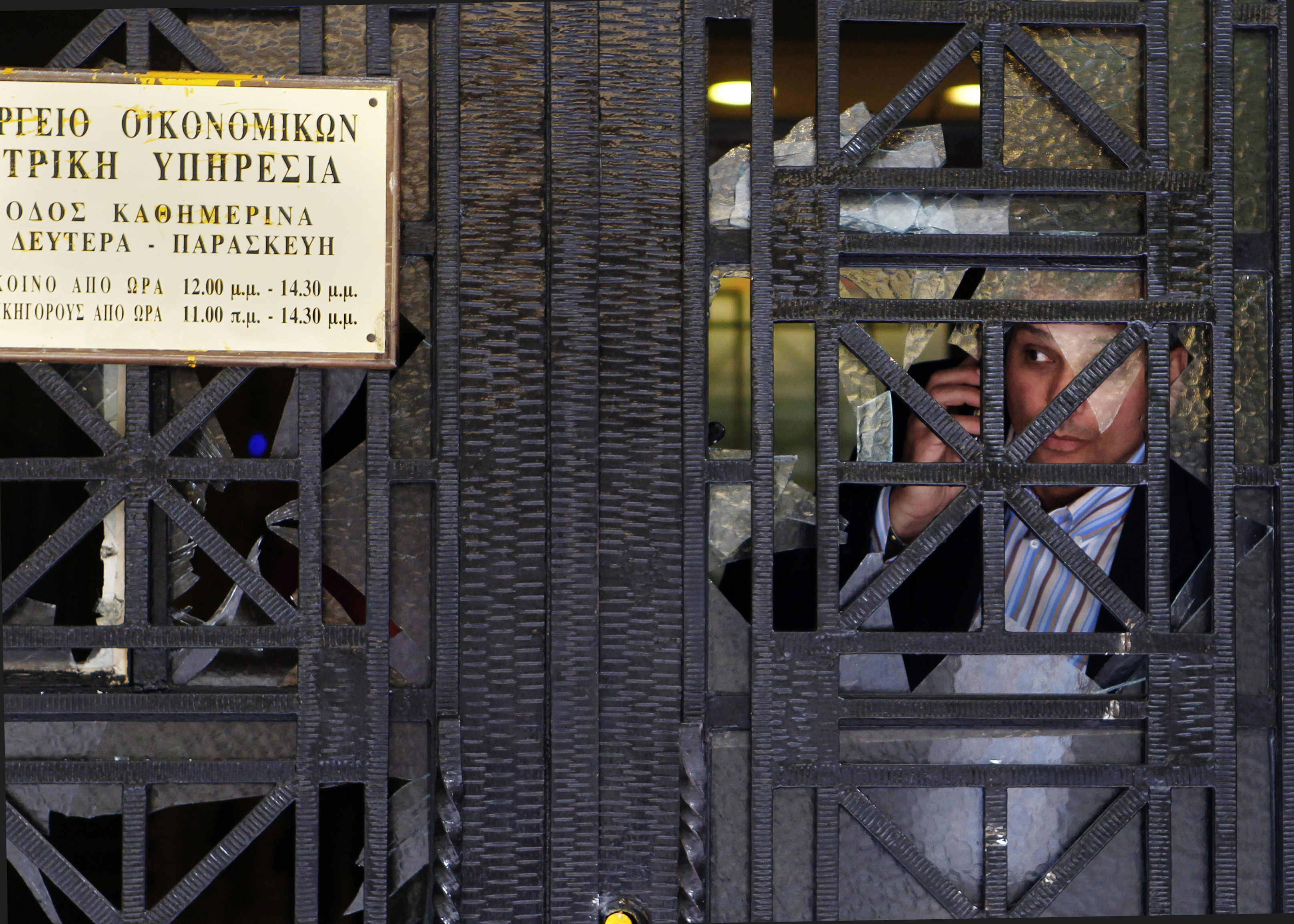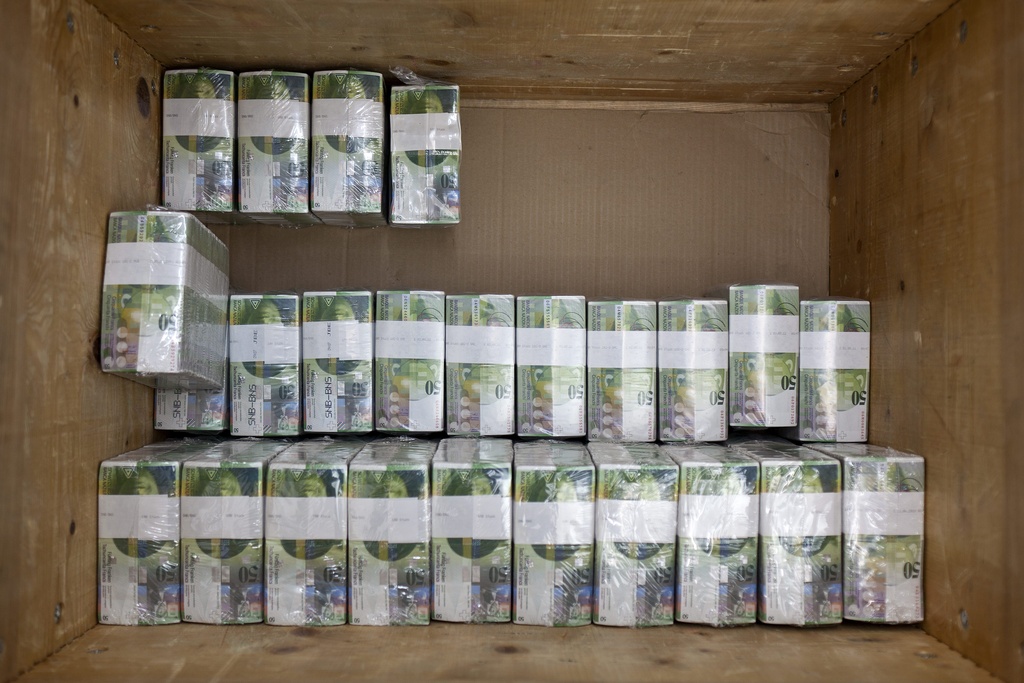Indignados’ revolt spreads to Switzerland

On October 15 thousands of people around the globe – including in Switzerland – will come out on the streets to protest against powerful elites.
swissinfo.ch spoke to the anthropologist Fabrizio Sabelli, a fervent supporter of the Indignados (the Outraged) movement, to find out why so many people are demonstrating and whether this can effect change.
There have already been popular protests in Spain, Greece and Israel. In the United States, the Occupy Wall Street movement has spread from New York across the country.
Saturday will see demonstrations against corporate power in more than 400 cities, including Geneva, Basel and Zurich.
Sabelli, an Italian who taught for many years at the universities of Neuchâtel and Lugano, as well as at the Graduate Institute of International and Development Studies in Geneva, will be taking part in Rome.
swissinfo.ch: Hundreds of thousands of young people have been demonstrating worldwide. Why?
Fabrizio Sabelli: Looking beyond local issues, what’s really driving young people is the simple desire for greater social justice. A desire for change has been in the air for several years but it’s only in the past few months that there has really been a collective awakening and that the outrage has been vocalised.
In 2008 during the first financial crisis people thought that the global economic order might be upset. But in the end little or nothing changed and therefore injustices and social exploitation multiplied. Outrage grew as people rediscovered the need for a real economy and specific problems such as unemployment or lack of housing became more serious.
In Europe and the US, anger boiled over when young people realised that the billions of euros being used to bail out troubled banks were coming from state budgets and therefore from citizens’ own pockets. But at the same time, social aid was being cut to the bone.
swissinfo.ch: Young people want more power to the people and less power for the economy. Are we witnessing a modern form of class war?
F.S.: In this case I wouldn’t call it a class war but internal contradictions of capitalism, to borrow some Marxist terminology. Capitalism is dying because of its own inconsistencies, because it can’t solve the problems that it itself has created.
These protests could actually speed up capitalism’s decline, but they don’t have enough power to call into question the entire current economic system. The system is self-destructing because it has become a huge casino, a global gaming room where people place bets instead of producing.
swissinfo.ch: The political system is also under fire, with demonstrators pointing to corruption, clientelism and the inability to respond to people’s real needs. Is there an evil devouring western democracies?
F.S.: The political apparatus is no longer responding to the mandate it was given by democratic vote but has instead become autonomous, looking after its own interests and those of powerful groups. Look at the US with the political lobbies in Congress, or at Italy, where control over media and advertising allowed Berlusconi to come to power with 25-26 per cent approval. This is absurd for a democratic country.
Decisions are no longer taken as a function of the political programme, they depend instead on mechanisms of power rather similar to the mafia’s. Pressure groups, rather than the people, determine decisions, thus protecting the interests of the stronger parties. It’s politics’ subjection to the economy and the lobbies of the powerful that has really disappointed young people.
swissinfo.ch: The Indignados don’t have a leader or political colours. Can they turn their emotions into concrete political action? In what form?
F.S.: Most analysts see the lack of leadership and identification with a traditional political party as a weak point in these protest movements. But I’m convinced that this represents their strength and originality. At the moment you have to denounce the system and its contradictions. You have to push people into a collective awakening and political institutions towards renewal. The time for programmes, bureaucracy and bosses will come later.
The movement is still disjointed but it’s also coherent. It’s more popular pressure than a popular organisation. It’s not a war between old parties and new movements, even if, in future, there will have to be a leader who can guide these young people. But there’s still time for this.
swissinfo.ch: The Indignados will soon be in Switzerland. What role can the movement play here?
F.S.: Switzerland is still a small and happy island so there are differences to other countries. But this can also mean that protest movements can have a strong impact and shake up this semblance of calm. However, the reasons for protest are not as strong because there’s more wealth and social justice in Switzerland.
Nevertheless, there has been a growing discontent in the past years over the pressure the banking sector continues to exert on politics. This is how Switzerland can join the Indignados movement, especially that in the US. Even in Switzerland politics is the hands of the financial sector and the financial sector decides how wealth is moved from one place to another, and therefore, indirectly, on people’s wellbeing or suffering.
May 15, 2011: Around 20,000 people demonstrated in several Spanish cities. This gave rise to the movement 15-M or the Indignados.
The demonstrations spread to Berlin, Brussels, London, Paris, Athens and Tel Aviv, where hundreds and thousands of young people took to the streets calling for more democracy and a better future.
By the end of September the protests had reached the US. A group of young people occupied the Zuccotti Park near Wall Street. Their slogan: we are the 99%. Demonstrations have spread to all the main cities in the country.
The young Indignados are not part of any traditional political movement. But their claims are supported by several parties on the left, intellectuals, politicians and economists – including the former economics Nobel prize winner and former chief economist at the World Bank Joseph Stiglitz and Paul Krugman.
October 15, 2011: protests go global, including in Zurich, Basel and Geneva in Switzerland. The organisers of the Swiss protests say they are coming out for a transparent financial system and for the banks to have less say.
Rome-born Fabrizio Sabelli is a lawyer, anthropologist, writer and cultural activities promoter.
He taught for many years in Switzerland at what is now the Graduate Institute of International and Development Studies, and at Lugano and Neuchâtel universities.
He is an expert in social and economic development, the anthropology of communication and the sociology of work. He lived for several years in Geneva.
Sabelli has published several books during his career, including Faith And Credit: The World Bank’s Secular Empire (1994, with Susan George) which has been translated into eight languages.
(Translated from Italian by Isobel Leybold-Johnson)

In compliance with the JTI standards
More: SWI swissinfo.ch certified by the Journalism Trust Initiative













You can find an overview of ongoing debates with our journalists here . Please join us!
If you want to start a conversation about a topic raised in this article or want to report factual errors, email us at english@swissinfo.ch.